
Discover the Historic Charm of Pécs
Nestled in the southwest of Hungary, Pécs is a city rich in history and culture. Known for its vibrant arts scene and well-preserved architectural heritage, Pécs offers a unique blend of Roman, Ottoman, and Hungarian influences. The city is home to several UNESCO World Heritage Sites, including the Early Christian Necropolis, which dates back to the 4th century. Walking through the city, you'll encounter stunning landmarks such as the Pécs Cathedral and the Mosque of Pasha Qasim, a testament to its diverse past. Pécs is also a city of learning and creativity. The University of Pécs, one of the oldest in Europe, contributes to a lively student atmosphere. Art lovers will find the Zsolnay Cultural Quarter particularly enchanting, with its colorful ceramics and artistic exhibitions. The city's museums, like the Csontváry Museum and the Vasarely Museum, offer deep dives into Hungarian art and history. Food and wine enthusiasts will delight in Pécs' culinary scene. The city's restaurants and cafés serve a mix of traditional Hungarian dishes and modern cuisine. Don't miss the opportunity to sample local wines from the nearby Villány wine region. Whether you're exploring its historical sites, enjoying its cultural offerings, or savoring its food and wine, Pécs promises an unforgettable experience.
Local tips in Pecs
- Visit the Early Christian Necropolis for a glimpse into ancient history.
- Explore the Zsolnay Cultural Quarter to see beautiful ceramics and art.
- Try local wines from the Villány wine region at one of the city's wine bars.
- Walk around the old town to discover hidden gems and historical buildings.
- Check out the Pécs Cathedral and the Mosque of Pasha Qasim for stunning architecture.
- Visit the city's museums to learn more about Hungarian art and history.
- Enjoy a coffee at one of the local cafés and watch the world go by.
- Plan your visit during one of the city's many cultural festivals for an enhanced experience.
Discover the Historic Charm of Pécs
Nestled in the southwest of Hungary, Pécs is a city rich in history and culture. Known for its vibrant arts scene and well-preserved architectural heritage, Pécs offers a unique blend of Roman, Ottoman, and Hungarian influences. The city is home to several UNESCO World Heritage Sites, including the Early Christian Necropolis, which dates back to the 4th century. Walking through the city, you'll encounter stunning landmarks such as the Pécs Cathedral and the Mosque of Pasha Qasim, a testament to its diverse past. Pécs is also a city of learning and creativity. The University of Pécs, one of the oldest in Europe, contributes to a lively student atmosphere. Art lovers will find the Zsolnay Cultural Quarter particularly enchanting, with its colorful ceramics and artistic exhibitions. The city's museums, like the Csontváry Museum and the Vasarely Museum, offer deep dives into Hungarian art and history. Food and wine enthusiasts will delight in Pécs' culinary scene. The city's restaurants and cafés serve a mix of traditional Hungarian dishes and modern cuisine. Don't miss the opportunity to sample local wines from the nearby Villány wine region. Whether you're exploring its historical sites, enjoying its cultural offerings, or savoring its food and wine, Pécs promises an unforgettable experience.
When is the best time to go to Pecs?
Iconic landmarks you can’t miss
Pécs TV Tower
Discover breathtaking views and the architectural beauty of Pécs TV Tower, a must-see tourist attraction on Misina Hill.
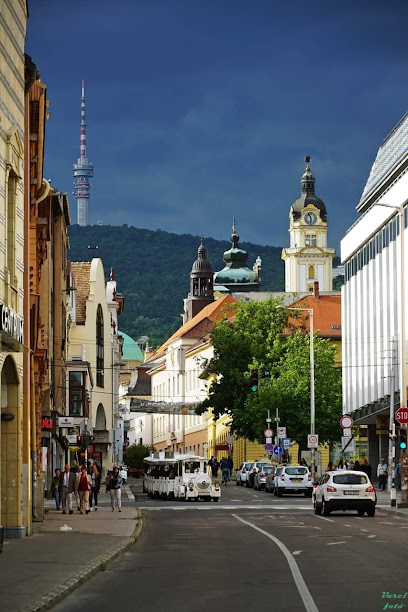
Zsolnay Cultural Quarter
Explore the Zsolnay Cultural Quarter in Pécs, a vibrant hub of art, history, and creativity showcasing Hungary's rich cultural heritage.
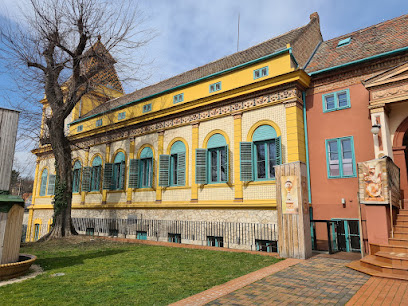
Pécs Zoo
Explore the vibrant wildlife at Pécs Zoo, a delightful family-friendly destination in Hungary's charming city of Pécs, perfect for nature lovers.
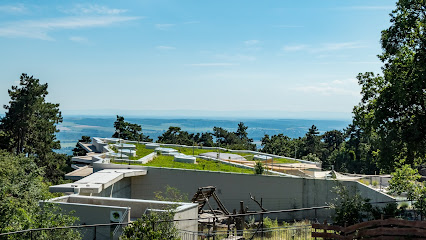
Széchenyi square
Experience the vibrant atmosphere of Széchenyi Square in Pécs, where history, culture, and culinary delights come together in a picturesque setting.
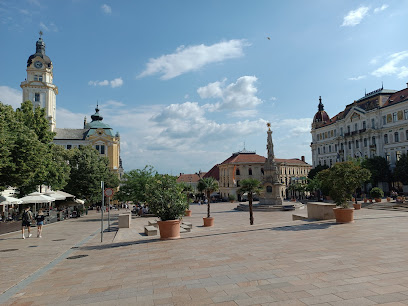
Pécs Cathedral
Discover the grandeur of Pécs Cathedral, a stunning architectural masterpiece and a key spiritual landmark in Hungary, offering breathtaking views and rich history.
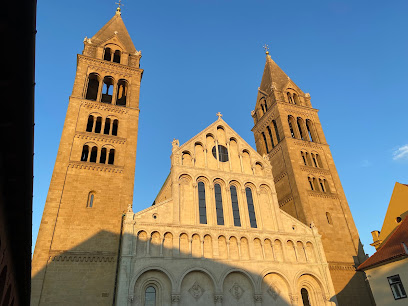
Mecsextrém Park
Experience the thrill of Mecsextrém Park in Pécs, Hungary – an amusement park filled with exciting rides and family-friendly attractions amid stunning natural beauty.
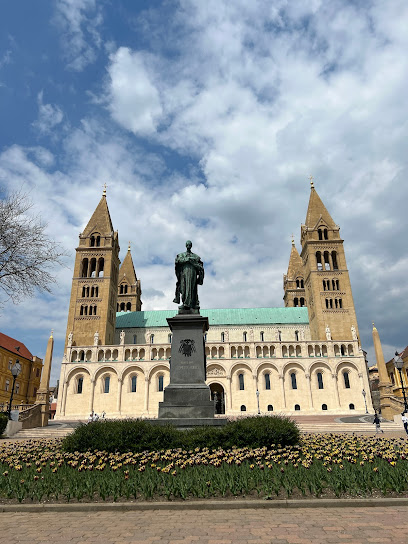
Tettye Ruins
Discover the Tettye Ruins in Pécs, Hungary - a historical site offering breathtaking views and a glimpse into the ancient past.
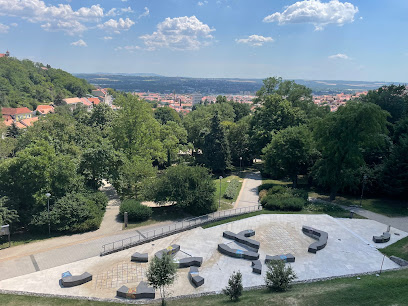
Nike Statue
Explore the Nike Statue in Pécs, a stunning landmark symbolizing victory, featuring breathtaking views and rich cultural heritage.
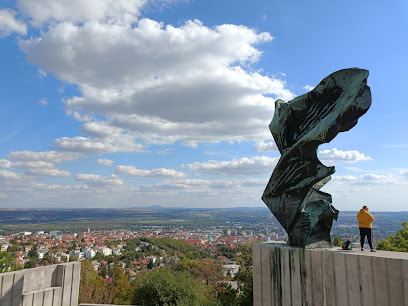
Csontváry Museum
Explore the vivid artistry of Tivadar Csontváry Kosztka at the Csontváry Museum in Pécs, a premier destination for art lovers and cultural enthusiasts.
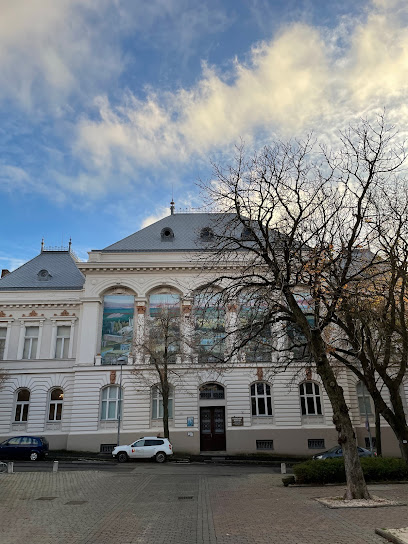
Pécs vasútállomás
Explore the historic Pécs Railway Station, a gateway to the vibrant city of Pécs and a hub of architectural beauty and cultural significance.
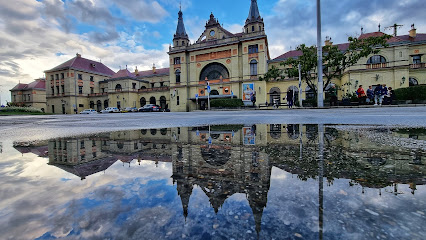
Zsolnay Fountain
Explore the enchanting Zsolnay Fountain in Pécs, a stunning display of artistry and local culture, perfect for photography and relaxation.
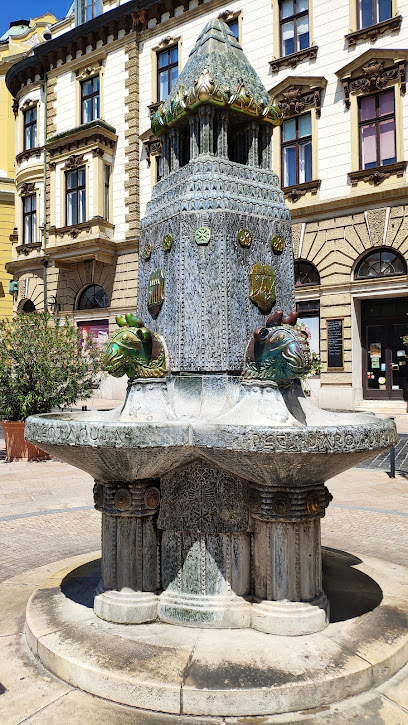
Victor Vasarely Museum
Explore the mesmerizing world of optical art at the Victor Vasarely Museum in Pécs, Hungary, a unique destination for art enthusiasts.
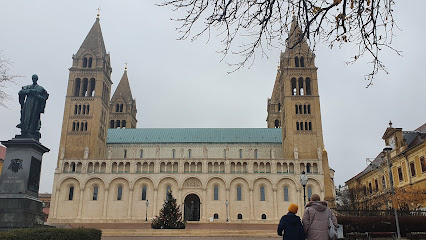
Freeport Cultural Center
Discover the essence of Pécs at the Freeport Cultural Center, a lively venue for nightlife, art, and community events in Hungary.
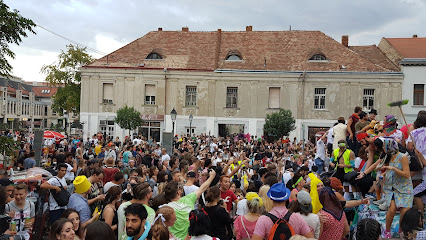
Downtown Candlemas Church of the Blessed Virgin Mary
Explore the historic Downtown Candlemas Church of the Blessed Virgin Mary in Pécs, a captivating blend of architectural beauty and cultural heritage.
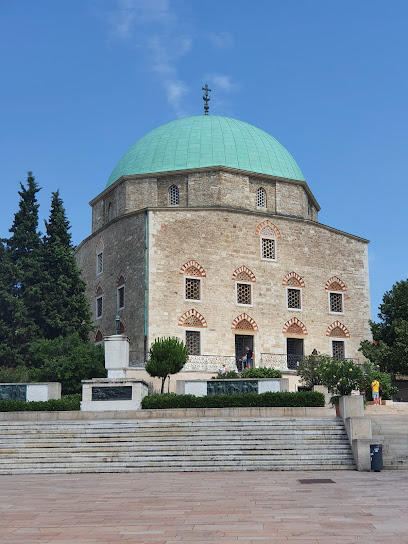
Zsolnay Porcelain Museum
Explore the rich heritage of Zsolnay porcelain at the Zsolnay Porcelain Museum in Pécs, a cultural gem showcasing exquisite craftsmanship and art.
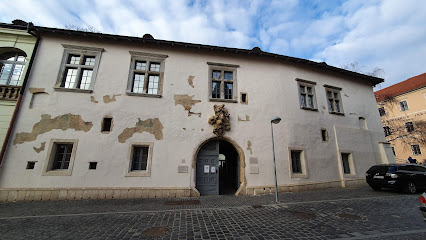
Unmissable attractions to see
Pécs TV Tower
Experience breathtaking views and scenic beauty at Pécs TV Tower, a must-visit landmark offering panoramic sights of the stunning city and surrounding landscapes.
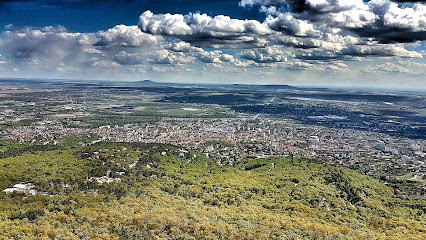
Zsolnay Cultural Quarter
Explore the artistic legacy of the Zsolnay Cultural Quarter in Pécs, a hub of creativity with galleries, concerts, and rich cultural experiences.
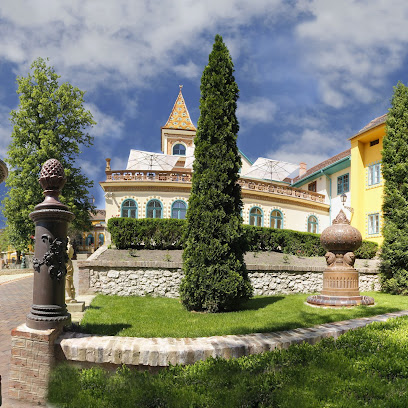
Pécs Zoo
Explore the enchanting Pécs Zoo in Hungary, a family-friendly attraction showcasing diverse wildlife and engaging educational experiences.
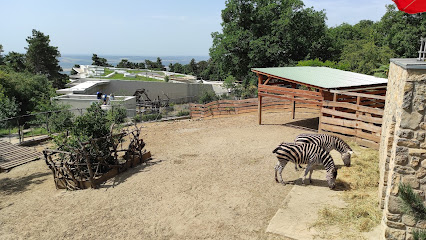
Széchenyi square
Discover the vibrant Széchenyi Square in Pécs, Hungary—a cultural hub with stunning architecture, delicious cuisine, and lively events.
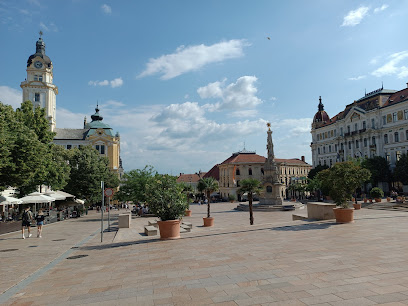
Pécs Cathedral
Explore Pécs Cathedral, a stunning fusion of architectural styles and a key cultural landmark in Hungary, offering a unique glimpse into the region's rich history.
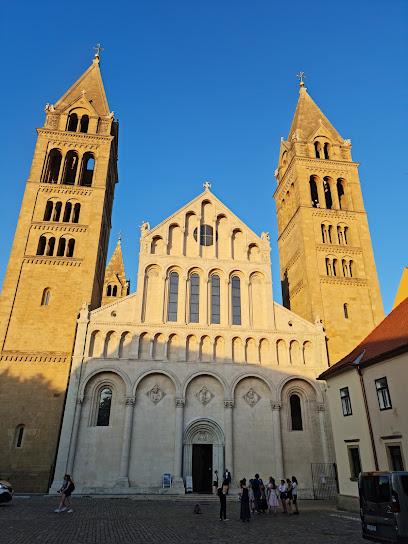
National Theatre of Pécs
Experience the artistic heart of Pécs at the National Theatre, where culture and history come alive through captivating performances.
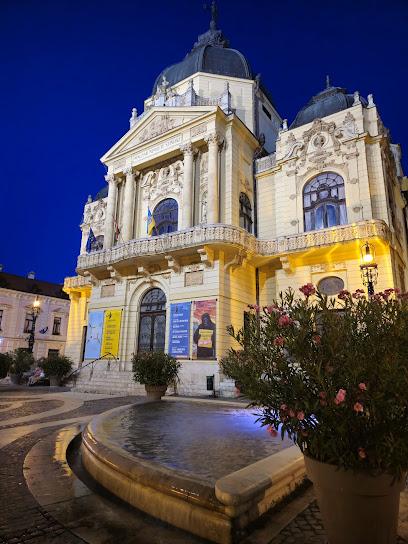
Tettye Ruins
Explore the Tettye Ruins in Pécs, Hungary - a historical gem offering stunning views and rich cultural heritage.
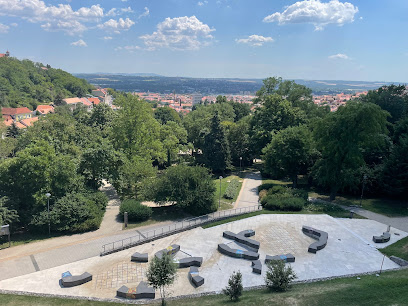
Nike Statue
Experience the breathtaking views and cultural significance at the Nike Statue in Pécs, a must-see tourist attraction blending history and beauty.
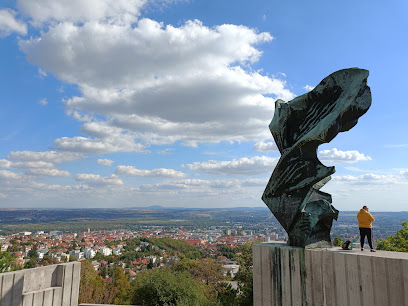
Csontváry Museum
Explore the vibrant world of Tivadar Csontváry Kosztka at the Csontváry Museum in Pécs, a gem of Hungarian art and culture.
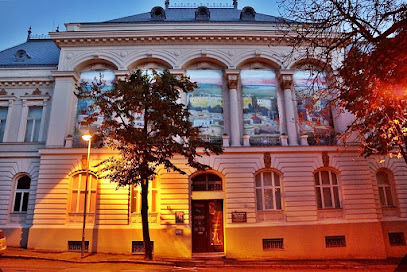
Zsolnay Fountain
Explore the Zsolnay Fountain in Pécs, where art, history, and nature unite in a spectacular display of beauty and culture.
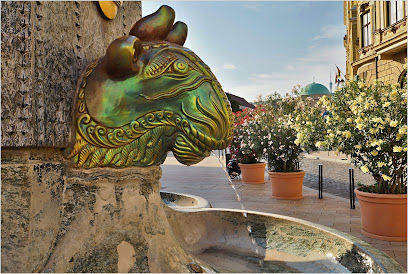
Tettyei Mésztufa-barlang
Discover the stunning formations and rich history of Tettyei Mésztufa-barlang, a must-visit natural wonder in Pécs, Hungary.
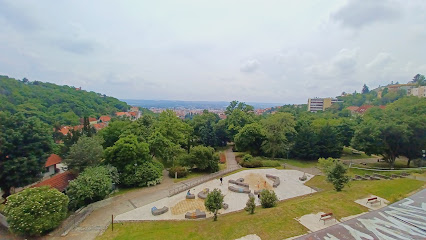
Flóra-pihenő
Experience the serene beauty of Flóra-pihenő, a scenic retreat in Pécs, perfect for picnics and nature walks amidst stunning landscapes.
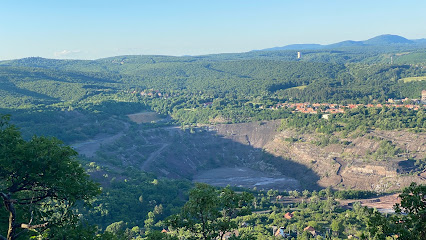
Victor Vasarely Museum
Discover the mesmerizing optical art of Victor Vasarely at his dedicated museum in Pécs, Hungary, where perception meets creativity.
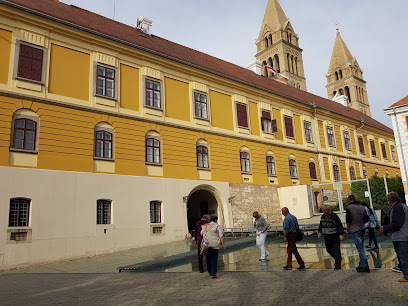
Downtown Candlemas Church of the Blessed Virgin Mary
Discover the stunning Candlemas Church of the Blessed Virgin Mary, a historical gem in Pécs, showcasing breathtaking architecture and rich cultural heritage.
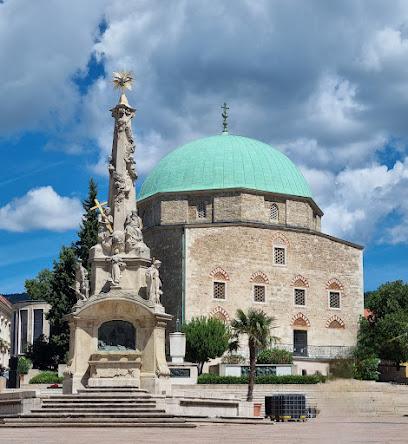
Zsolnay Statue
Explore Pécs’ Zsolnay Statue, a stunning tribute to Hungary's artistic heritage, where craftsmanship and culture converge in a picturesque setting.
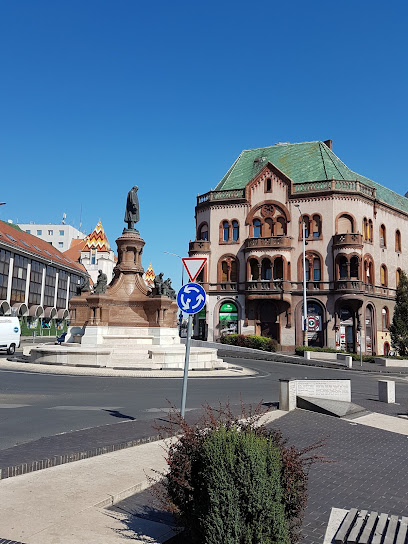
Essential places to dine
Csülök Bár étterem
Discover the rich flavors of Hungary at Csülök Bár in Pécs – where traditional cuisine meets modern dining.
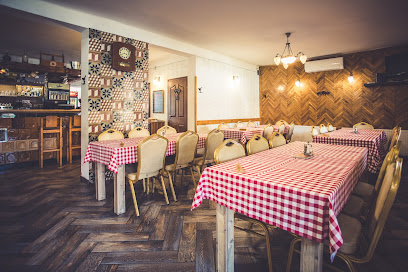
Bagolyvár
Experience exquisite dining at Bagolyvár in Pécs – where culinary artistry meets stunning natural views.
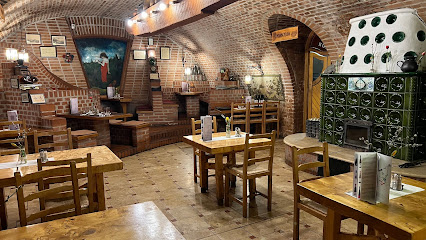
Bohemia Sörkonyha
Experience the best of Czech cuisine at Bohemia Sörkonyha in Pécs - where every meal is a celebration of flavor and culture.
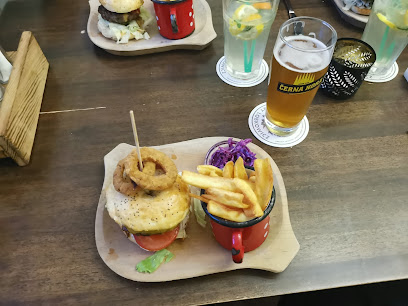
Korhely Étterem
Discover Korhely Étterem in Pécs - where traditional Hungarian flavors meet a lively pub atmosphere.
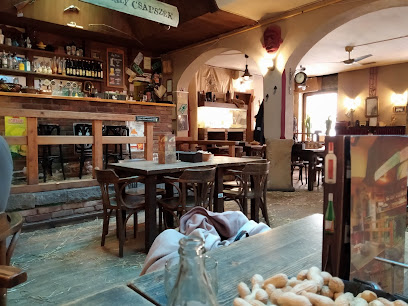
Elephant Restaurant and Pizzeria
Experience culinary excellence at Elephant Restaurant and Pizzeria in Pécs - where local flavors meet international cuisine.
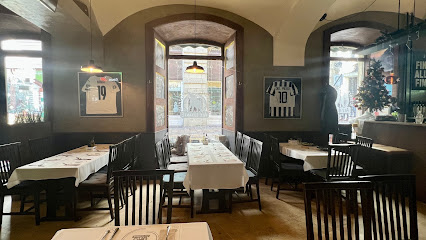
Fiacre Restaurant
Discover the flavors of Hungary at Fiacre Restaurant in Pécs – perfect for families seeking delicious meals in a warm atmosphere.
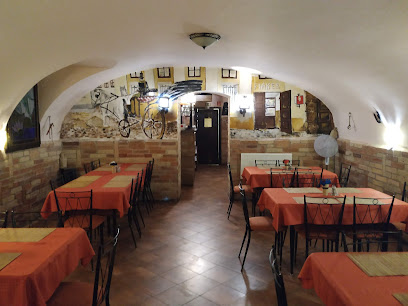
Nana
Discover the flavors of Hungary at Nana Restaurant in Pécs - where tradition meets innovation in every bite.
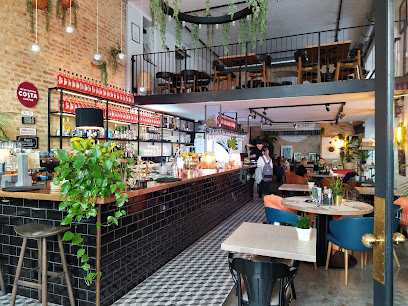
Ciao Pizzéria és Ristorante
Discover authentic Italian cuisine at Ciao Pizzéria és Ristorante in Pécs – where every meal is a celebration of flavor.
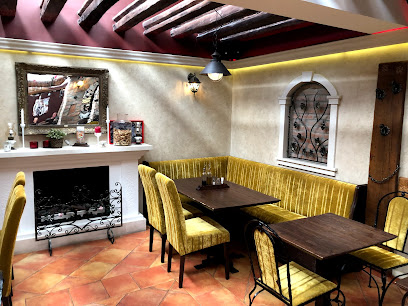
Blöff Bisztro
Experience exquisite Mediterranean flavors at Blöff Bisztro - your premier dining destination in Pécs.
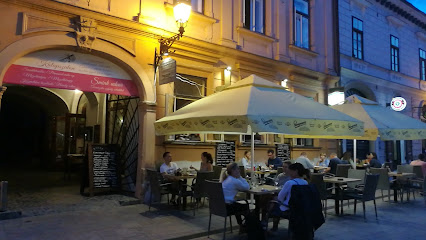
Reggeli
Discover the best brunch experience in Pécs at Reggeli - where delicious food meets warm hospitality.
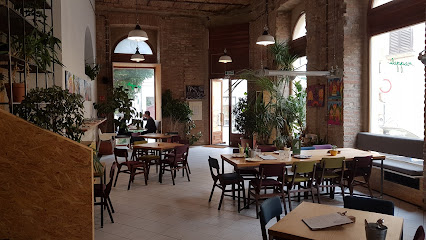
Aranygaluska
Experience authentic Hungarian flavors at Aranygaluska in Pécs - where tradition meets taste in every delightful bite.
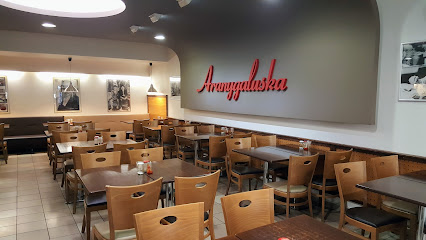
Bazaar
Experience the vibrant flavors of Hungary at Bazaar in Pécs—where local charm meets culinary excellence in a lively brasserie setting.
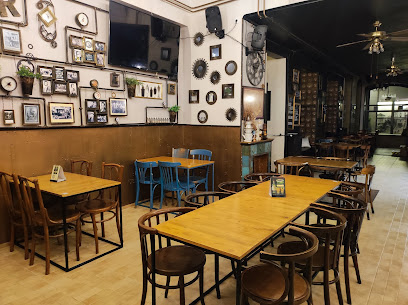
Király21 Beerhouse & Grill
Savor the flavors of America at Király21 Beerhouse & Grill in Pécs - where great food meets a lively atmosphere.
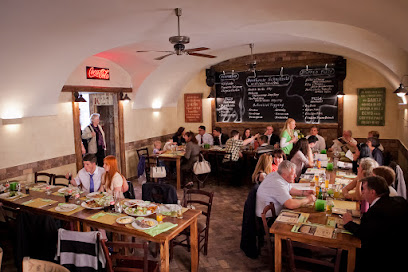
Lezser Bárkonyha
Discover the flavors of Hungary at Lezser Bárkonyha in Pécs - where local cuisine meets modern dining.
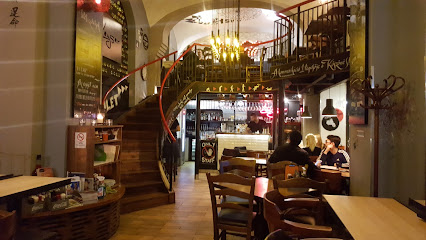
Balkán Bisztró
Experience the authentic flavors of Balkan cuisine at Balkán Bisztró in Pécs - where tradition meets taste in every dish.
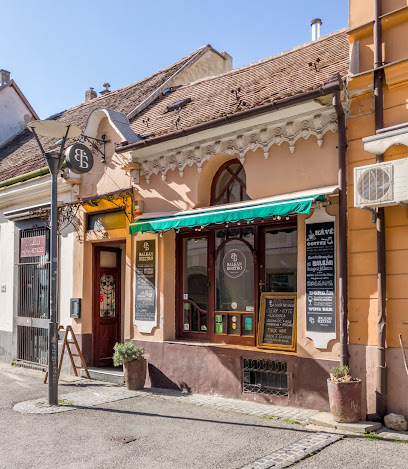
Markets, malls and hidden boutiques
Árkád
Explore Árkád Pécs, a vibrant shopping mall offering a mix of retail, dining, and entertainment for an unforgettable experience.
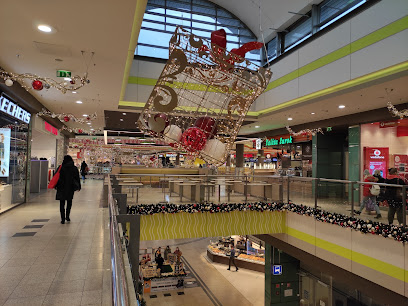
Pécs Plaza
Explore Pécs Plaza, a dynamic shopping mall in Pécs, Hungary, with diverse stores, delicious dining, and entertainment options for every visitor.
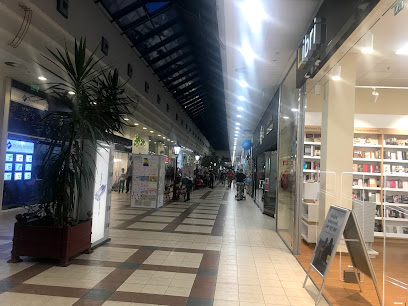
Konzum Áruház
Discover the vibrant shopping experience at Konzum Áruház in Pécs, where local charm meets diverse retail options.
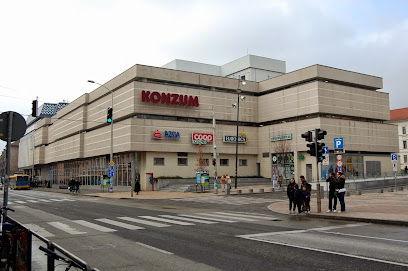
H&M
Explore stylish fashion choices at H&M in Pécs, where affordability meets trendiness for the whole family.
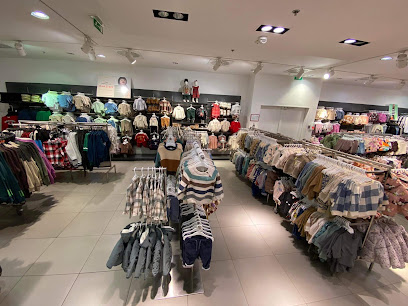
Bershka
Discover contemporary fashion at Bershka in Pécs, your go-to destination for stylish clothing and accessories that reflect the latest trends.
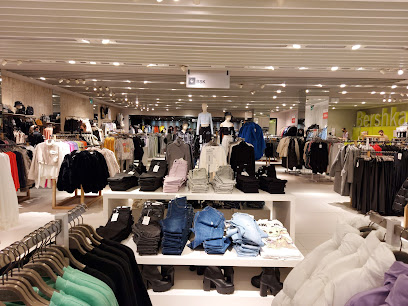
Reserved
Discover the latest fashion trends at Reserved in Pécs, a premier clothing store for men and women offering stylish apparel and accessories.
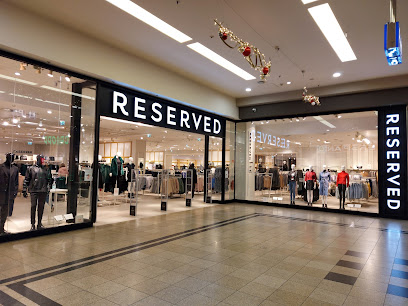
Takko Fashion
Explore Takko Fashion in Pécs for a diverse selection of stylish clothing, perfect for families and fashion enthusiasts alike.
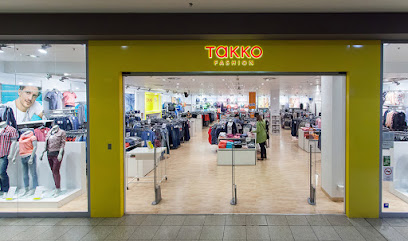
Zsolnay Brand Store
Explore the exquisite world of Zsolnay porcelain at the Zsolnay Brand Store in Pécs, where craftsmanship meets tradition in every piece.
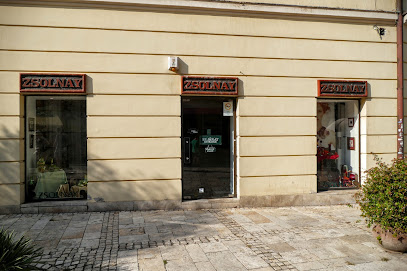
NEW YORKER
Explore the latest fashion trends at NEW YORKER in Pécs, offering stylish clothing and accessories for everyone.
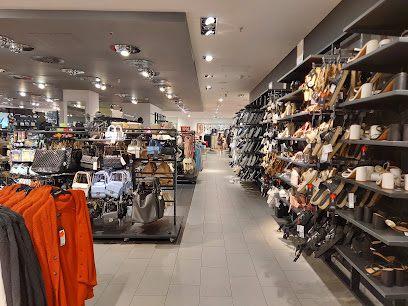
Kreatív Hobby Pécs
Explore your artistic side at Kreatív Hobby Pécs, a vibrant hobby store filled with supplies that inspire creativity and craft.
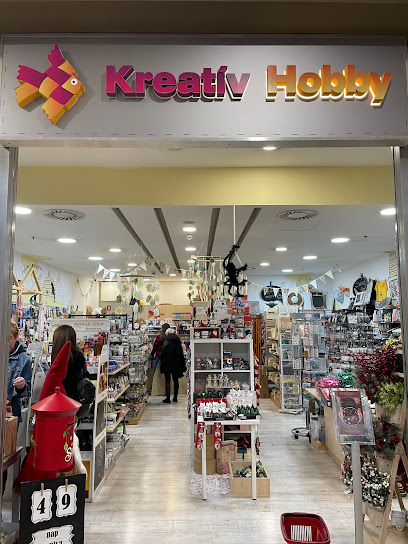
Bijou Brigitte
Explore Bijou Brigitte in Pécs for an exquisite selection of fashion accessories that add a unique touch to your style.

Pandora
Explore Pandora in Pécs for exquisite jewelry that captures memories and moments with unique designs and exceptional craftsmanship.
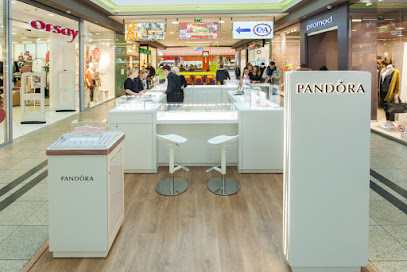
Dormeo-Top Shop Pécs Árkád
Explore Dormeo-Top Shop in Pécs Árkád for premium home goods, specializing in innovative bedding solutions for ultimate comfort and relaxation.

Andréli Illatszer
Discover the enchanting world of fragrances at Andréli Illatszer in Pécs, Hungary - a must-visit perfume store for every traveler.

Dockyard
Discover Dockyard in Pécs, the ultimate destination for stylish clothing, shoes, and top-notch sportswear in Hungary.
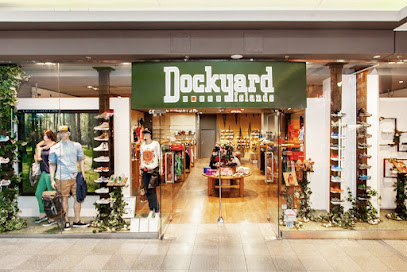
Essential bars & hidden hideouts
Csülök Bár étterem
Discover the authentic flavors of Hungary at Csülök Bár in Pécs, a culinary gem featuring traditional dishes and local wines.
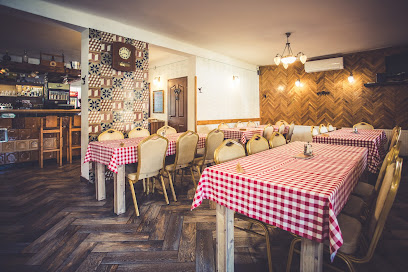
Bohemia Sörkonyha
Discover the flavors of Czech cuisine and gourmet burgers at Bohemia Sörkonyha, the premier gastropub in Pécs.
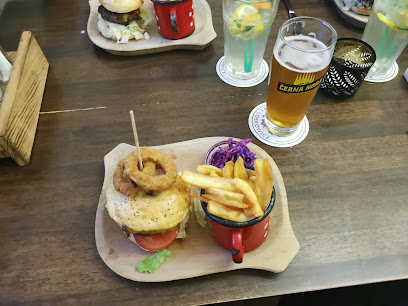
Korhely Étterem
Discover the flavors of Hungary and beyond at Korhely Étterem, a vibrant restaurant and pub in the heart of Pécs, perfect for food lovers.
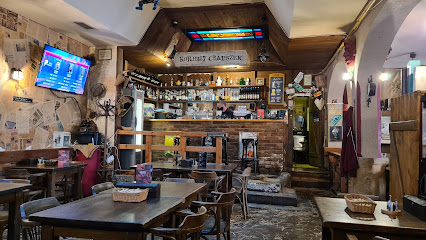
Nappali
Experience the vibrant nightlife of Pécs at Nappali – a bar, coffee shop, and concert hall all in one, perfect for every visitor's taste.
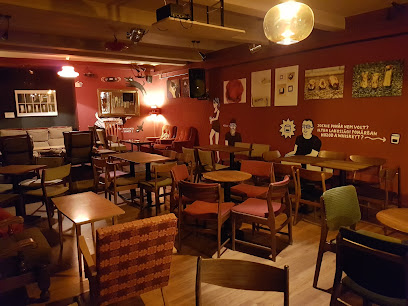
Bazaar
Experience the vibrant culinary scene at Bazaar, a local brasserie and beer hall in Pécs serving authentic Hungarian dishes and a wide selection of beers.
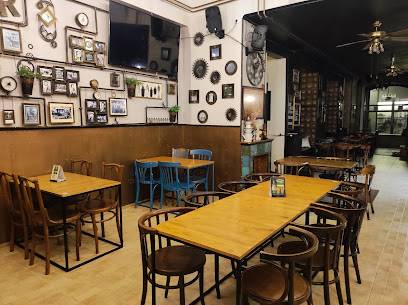
Cooltour Café
Discover the vibrant Cooltour Café in Pécs, where delightful drinks and a cozy atmosphere create the perfect escape for tourists.
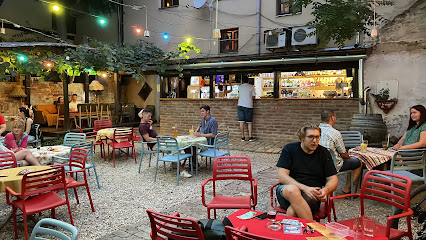
GLASGOW Pub & Café
Discover the heart of Pécs at GLASGOW Pub & Café, where Irish charm meets local hospitality and delightful cuisine.
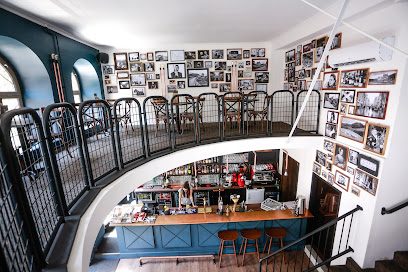
Vödör Café
Experience the vibrant atmosphere and delicious drinks at Vödör Café in Pécs, perfect for every night out.
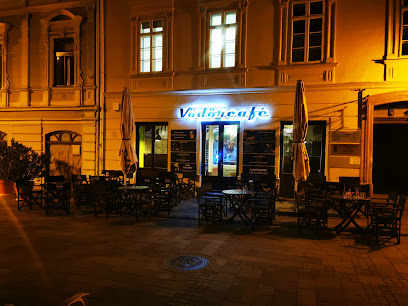
Bar of Legends
Experience the vibrant blend of gaming culture and social interaction at Bar of Legends in Pécs, where every night is an adventure.
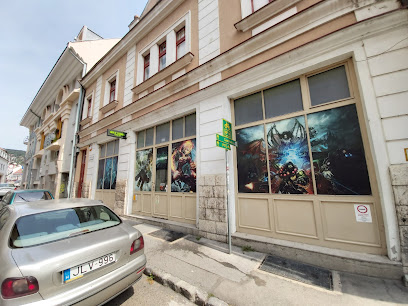
Fry - Söröző - Pub
Discover the charm of Fry - Söröző - Pub in Pécs, where local flavors and a cozy atmosphere come together for an unforgettable experience.
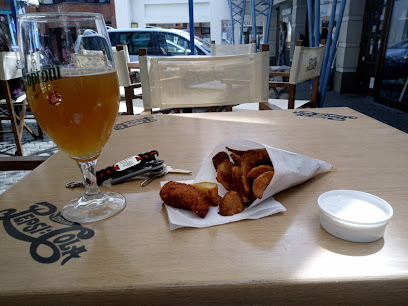
Monte Cristo
Discover Monte Cristo in Pécs: a vibrant bar and pub offering a unique blend of local flavors and cozy ambiance for an unforgettable experience.
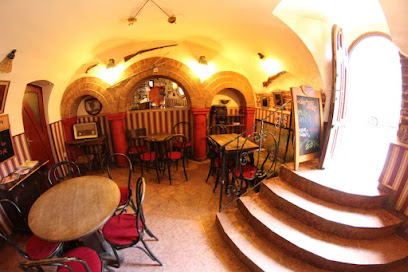
Downtown Bar
Experience the vibrant nightlife of Pécs at Downtown Bar, where great drinks and lively ambiance come together for an unforgettable evening.
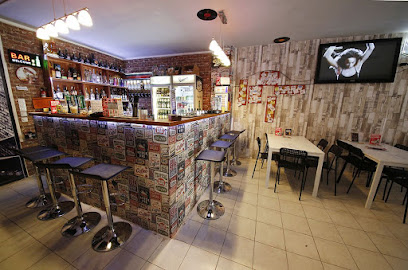
Beertok 2.0 Bar & Shop
Experience Pécs like a local at Beertok 2.0 Bar & Shop, where craft beer meets vibrant atmosphere in Hungary's cultural gem.
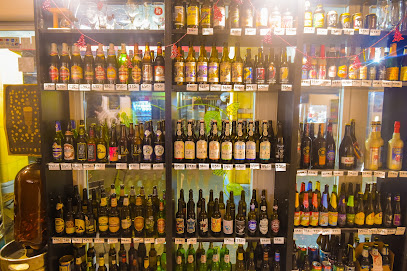
Sárkány Barlang Rock Bar
Discover Sárkány Barlang Rock Bar in Pécs - a vibrant rock bar with a lively atmosphere, diverse drinks, and local music that resonates with nightlife enthusiasts!
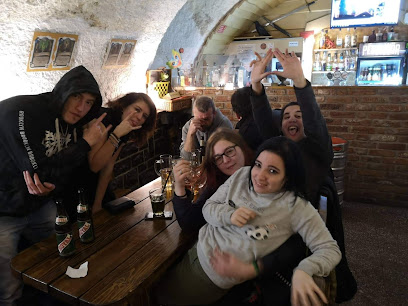
Local Phrases
-
- HelloSzia
[see-ah] - GoodbyeViszontlátásra
[vee-sont-la-tah-shra] - YesIgen
[ee-gen] - NoNem
[nem] - Please/You're welcomeKérem
[keh-rem] - Thank youKöszönöm
[kur-suh-nurm] - Excuse me/SorryElnézést
[el-nay-zayst] - How are you?Hogy vagy?
[hohdge vahdj] - Fine. And you?Jól vagyok. És te?
[yol vahdj-ok. aysh teh] - Do you speak English?Beszélsz angolul?
[bes-ales ang-oh-lool] - I don't understandNem értem
[nem ayr-tem]
- HelloSzia
-
- I'd like to see the menu, pleaseSzeretnék látni az étlapot, kérem
[seh-reht-nayk laht-nee ahs ayt-lah-pot, keh-rem] - I don't eat meatNem eszem húst
[nem es-em hoost] - Cheers!Egészségedre!
[ay-gays-shay-gehd-reh] - I would like to pay, pleaseSzeretnék fizetni, kérem
[seh-reht-nayk fee-zeht-nee, keh-rem]
- I'd like to see the menu, pleaseSzeretnék látni az étlapot, kérem
-
- Help!Segítség!
[she-geet-shayg] - Go away!Menj el!
[mehn yel] - Call the Police!Hívd a rendőrséget!
[heed oh rend-ersh-ay-get] - Call a doctor!Hívd az orvost!
[heed ahs or-vosht] - I'm lostElvesztem
[el-veh-stem] - I'm illBeteg vagyok
[beh-tehg vahdj-ok]
- Help!Segítség!
-
- I'd like to buy...Szeretnék vásárolni...
[seh-reht-nayk vah-shah-rohl-nee] - I'm just lookingCsak nézelődöm
[chahk nay-zeh-loh-dohm] - How much is it?Mennyibe kerül?
[men-nyee-beh keh-rool] - That's too expensiveTúl drága
[tool dra-gah] - Can you lower the price?Le tudnád engedni az árat?
[leh too-dnaad en-geh-dnee ahs ahr-aht]
- I'd like to buy...Szeretnék vásárolni...
-
- What time is it?Mennyi az idő?
[men-nyee ahs ee-doh] - It's one o'clockEgy óra van
[edj oh-rah vahn] - Half past (10)Fél tizenegy
[fayl tee-zen-edge] - MorningReggel
[rehg-gehl] - AfternoonDélelőtt
[day-leh-loht] - EveningEste
[eh-shteh] - YesterdayTegnap
[tehg-nahp] - TodayMa
[mah] - TomorrowHolnap
[hol-nahp] - 1Egy
[edj] - 2Kettő
[ket-toh] - 3Három
[hah-rom] - 4Négy
[naydj] - 5Öt
[oht] - 6Hat
[haht] - 7Hét
[hayt] - 8Nyolc
[nyolts] - 9Kilenc
[keelents] - 10Tíz
[teaz]
- What time is it?Mennyi az idő?
-
- Where's a/the...?Hol van a...?
[hohl vahn ah] - What's the address?Mi a cím?
[mee ah cheem] - Can you show me (on the map)?Megmutatnád nekem (a térképen)?
[me-gmoo-taht-naad neh-kem a tehr-keh-pehn] - When's the next (bus)?Mikor jön a következő (busz)?
[mee-kor yuhn ah kev-et-keh-zoh boos] - A ticket (to ....)Egy jegyet (....-ra)
[edj yeh-get (rah)]
- Where's a/the...?Hol van a...?
History of Pecs
-
Pécs, originally known as Sopianae, was founded by the Romans in the 2nd century AD. It quickly became a vital regional center due to its strategic location along Roman trade routes. The city flourished with the construction of public baths, temples, and an amphitheater. The Early Christian Necropolis of Pécs, a UNESCO World Heritage site, dates back to this era and showcases elaborate tombs and burial chambers adorned with frescoes.
-
During the Middle Ages, Pécs became an important ecclesiastical center. The founding of the University of Pécs in 1367 by King Louis I of Hungary marked a significant milestone, making it the first university in Hungary. Gothic architecture from this period, such as the Pécs Cathedral, still stands as a testament to the city's medieval prosperity and cultural significance.
-
In the 16th century, Pécs fell under Ottoman rule following the Battle of Mohács in 1526. The city experienced significant cultural and architectural transformations. Many churches were converted into mosques, and new Islamic structures, such as the Gazi Kasim Pasha Mosque, were built. The Ottoman influence is still evident in the city's architecture and cultural heritage.
-
With the end of Ottoman control in the late 17th century, Pécs became part of the Habsburg Monarchy. The city underwent a period of reconstruction and modernization. The 19th century brought industrialization, with the establishment of factories and the expansion of the coal mining industry. This era also saw the construction of significant public buildings, including the Neo-Romanesque Pécs Synagogue.
-
The 20th century was a period of significant upheaval and transformation for Pécs. The city faced the ravages of World War I and II, which led to economic and social challenges. However, the post-war era saw renewed growth and development. Pécs was designated a European Capital of Culture in 2010, which spurred cultural investment and infrastructure improvements, solidifying its status as a vibrant cultural and educational hub.
-
Today, Pécs is celebrated for its rich cultural heritage and vibrant arts scene. The Zsolnay Cultural Quarter, named after the famous Zsolnay ceramics factory, hosts a variety of cultural events and exhibitions. The city's diverse history is reflected in its architectural landmarks, museums, and cultural institutions, making it a fascinating destination for history enthusiasts and travelers alike.
Pecs Essentials
-
Pecs is located in the southwest of Hungary, about 200 kilometers from Budapest. The nearest international airport is Budapest Ferenc Liszt International Airport (BUD). From Budapest, you can take a direct train to Pecs, which typically takes around 2.5 to 3 hours. Alternatively, you can take a bus from Budapest's Népliget Bus Station to Pecs. If you prefer driving, you can rent a car and take the M6 motorway, which connects Budapest to Pecs.
-
Pecs is a relatively compact city, and many of its attractions are within walking distance. Public transportation includes buses and taxis. The local bus system is efficient and covers most parts of the city. Taxis are also available and can be hailed on the street or booked via phone or app. For a more flexible experience, consider renting a bicycle or a car. Parking is available but can be limited in the city center.
-
The official currency in Hungary is the Hungarian Forint (HUF). Credit and debit cards are widely accepted in hotels, restaurants, and larger shops. However, it is advisable to carry some cash for smaller establishments, markets, and public transport. ATMs are readily available throughout Pecs, and currency exchange services are also accessible.
-
Pecs is generally a safe city for tourists. However, it is advisable to take standard precautions. Avoid walking alone at night in unfamiliar or poorly lit areas. Be cautious of pickpockets in crowded places such as markets and public transport. Areas around the train station and some parts of the city outskirts may have higher crime rates, so stay vigilant and avoid these areas at night.
-
In case of emergency, dial 112 for immediate assistance, which is the EU-wide emergency number. Pecs has several medical facilities, including the Clinical Centre of the University of Pecs, which provides comprehensive medical services. Pharmacies are available for minor health issues and over-the-counter medications. It is recommended to have travel insurance that covers medical emergencies.
-
Fashion: Do dress modestly, especially when visiting religious sites. Avoid overly casual clothing in nicer restaurants. Religion: Do respect local customs and traditions. Remove your hat and be quiet when entering churches. Public Transport: Do validate your bus ticket upon boarding. Don't eat or drink on public transport. Greetings: Do greet people with a handshake. A polite nod or slight bow is also acceptable. Eating & Drinking: Do try local dishes and wines. Don't leave food on your plate, as it can be considered wasteful.
-
To experience Pecs like a local, visit the Pecs Market Hall for fresh produce, local cheeses, and meats. Explore the Zsolnay Cultural Quarter to understand the city's artistic heritage. Engage with locals in cafes; they are often friendly and willing to share stories about the city's history and culture. Don't miss the opportunity to hike in the nearby Mecsek Mountains for stunning views and outdoor activities. Also, consider attending a performance at the Pecs National Theatre for a taste of local culture.
Trending Landmark in Pecs
Nearby Cities to Pecs
-
Things To Do in Keszthely
-
Things To Do in Subotica
-
Things To Do in Veszprem
-
Things To Do in Szekesfehervar
-
Things To Do in Zalaegerszeg
-
Things To Do in Kecskemet
-
Things To Do in Szeged
-
Things To Do in Novi Sad
-
Things To Do in Banja Luka
-
Things To Do in Tatabanya
-
Things To Do in Budapest
-
Things To Do in Tuzla
-
Things To Do in Zagreb
-
Things To Do in Szombathely
-
Things To Do in Gyor













